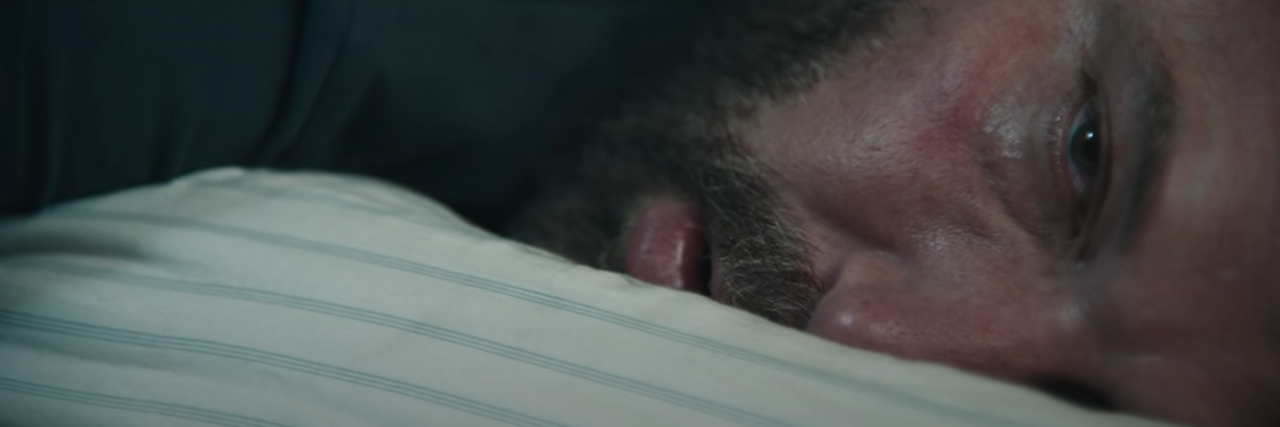What an Addiction Professional Thinks About Ben Affleck’s Portrayal in ‘The Way Back’
Editor's Note
If you or a loved one is affected by addiction, the following post could be triggering. You can contact SAMHSA’s hotline at 1-800-662-4357.
I recently had a chance to attend the new Ben Affleck movie, “The Way Back,” on its opening night in Tucson. My interest was piqued not only out of personal curiosity, but as an addiction medicine physician who works with persons living with substance use disorder every day.
I was initially struck by the gritty film style, and while I don’t know if the production quality was intentional or not, it did lend an air of realism to the portion of the movie I liked: Alcoholism is hard and gritty. Affleck aptly portrayed the life of a person whose brain’s reward system has been totally hijacked by the drug, or in the parlance, “deep in their cups.” The scenes of his character’s drinking in the morning, drinking in the shower, drinking in the car, hiding the bottles, disappearing into a bar and repeatedly getting dragged home by friends were well-played by the director with Affleck lending a solid performance of an alcoholic. The scenes showing relapse were particularly hard-hitting, and the film showed the progressive nature of the disease. Affleck himself had a well-publicized struggle with alcohol use disorder and while this certainly wasn’t his best acting or film, the pain in his portrayal was apparent.
I especially appreciated the unfolding of the trauma and grief of his losing a child to cancer, portrayed as a catalyst for the drink. I tell my patients struggling with addiction: “It’s never the one thing; it’s always all of it.” What do I mean? Addiction is now widely recognized in the medical community as a chronic, progressive disease of the brain’s reward pathway. Addiction is heavily influenced by your genetics and any early use of a substance, as well as by your family of origin, peer group influence and other psychosocial factors. While early and frequent use, and genetics, are often enough to initiate and maintain the disease state of addiction, the impact of trauma, untreated or poorly treated mood disorders such as anxiety and depression, unmitigated and unprocessed grief, or untreated attention-deficit hyperactivity disorder (ADHD) are all pivotal component of this disease. In order to truly treat addiction, one must treat the whole person — the mind, body and spirit of the whole person, that is.
That’s where I must diverge from of the portrayal of the disease by Affleck in “The Way Back” as I find fault with the movie in portraying his treatment. I get the fact that “The Way Back” is also a sports film and there’s only so much time to spend on a subject while keeping within production budgets. That said, the scene where Affleck’s character drives up to the bar, parks, rethinks it and drives away — then just starts coaching and staying “sober” without help — lost me. It’s a dangerous message to send: that individuals who drink at that level can just stop without medical monitoring and assistance. Alcohol withdrawal is life-threatening in many cases and can cause seizures, significantly elevated blood pressure, severe anxiety or depression and in the worst-case scenario, delirium tremens or even death. (Take home message: Seek help!)
The film also suggests that abstinence equals emotional sobriety, and this just isn’t true. If it were, people could just spend a few days in a medical detox unit and be on their way to recovery. This simply is not the case. Even when Affleck’s character attends a shadowy version of a residential rehab center, the minimal focus on a therapy session, with no examination of underlying issues, no focus on 12-step or other self-help groups, no medical care or medically assisted treatment, no follow-up … no anything, which just left me cold. It rather irresponsibly gives a false impression of recovery with no sense of the possibilities of caring and robust recovery. In the end, the yardstick I use to judge this film was this question: Years ago, when I found myself wondering how to stop my own alcohol use and addiction, would I have found any hope or help from Affleck’s film? Without equivocation, my answer was no. I think that will be the case for most of my patients dealing with addiction.
So, while I give the film’s producers and crew kudos for portrayal of the disease, I can only offer a failing grade for their watering down of the solution. Substance abuse is not only chronic and progressive, but it’s also often fatal. April is Alcohol Awareness Month and so it bears mentioning that treatment is available and effective for those who pursue it. Treatment must include long-term support in a community of recovery and addressing not only the addictive component of the brain, but the underlying issues that help drive the addiction.
Dr. Donnie Sansom, DO, is Associate Medical Director and Director of Addictions for Arizona’s famed Sierra Tucson mental health treatment center, where he guides individuals with all forms of substance use disorder toward a path of lifelong sobriety and health. Learn more about Sierra Tucson at sierratucson.com.
Image via YouTube

